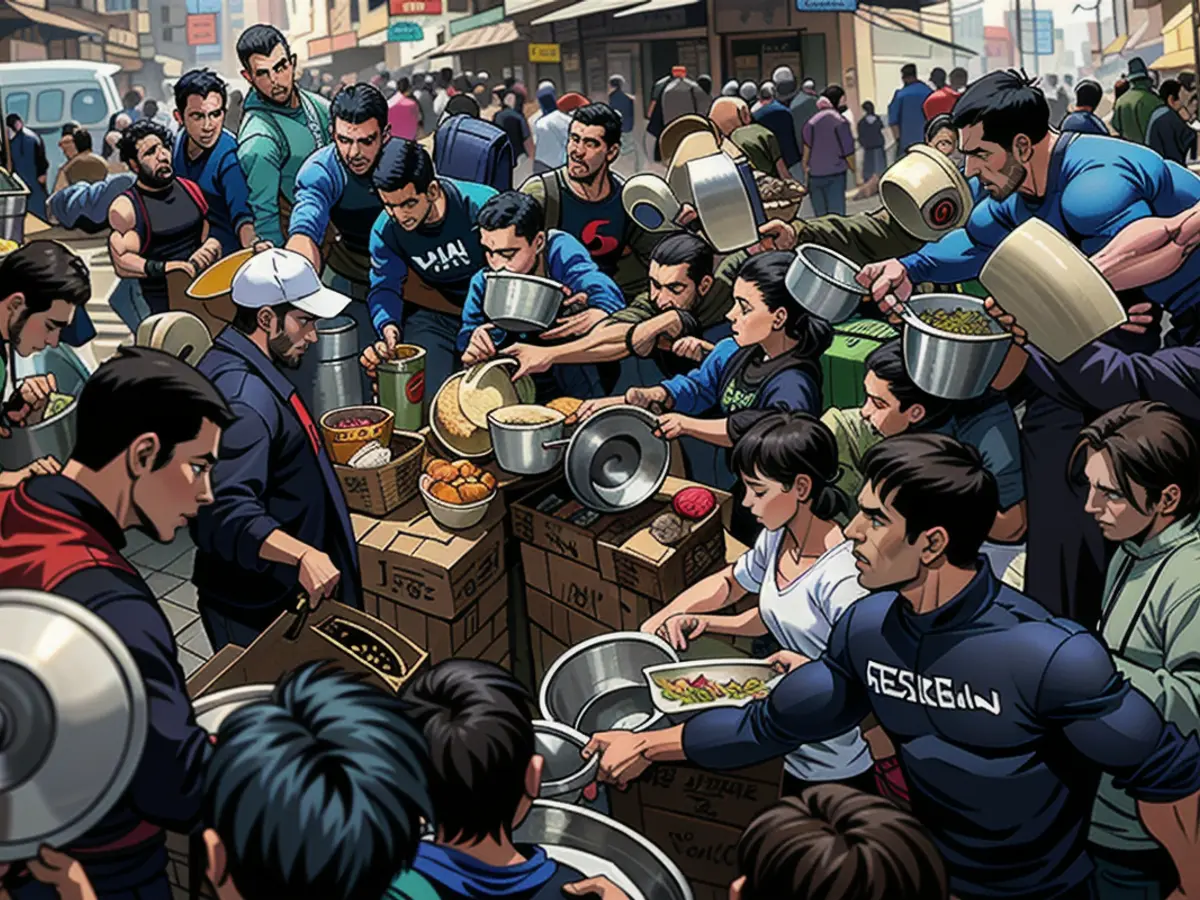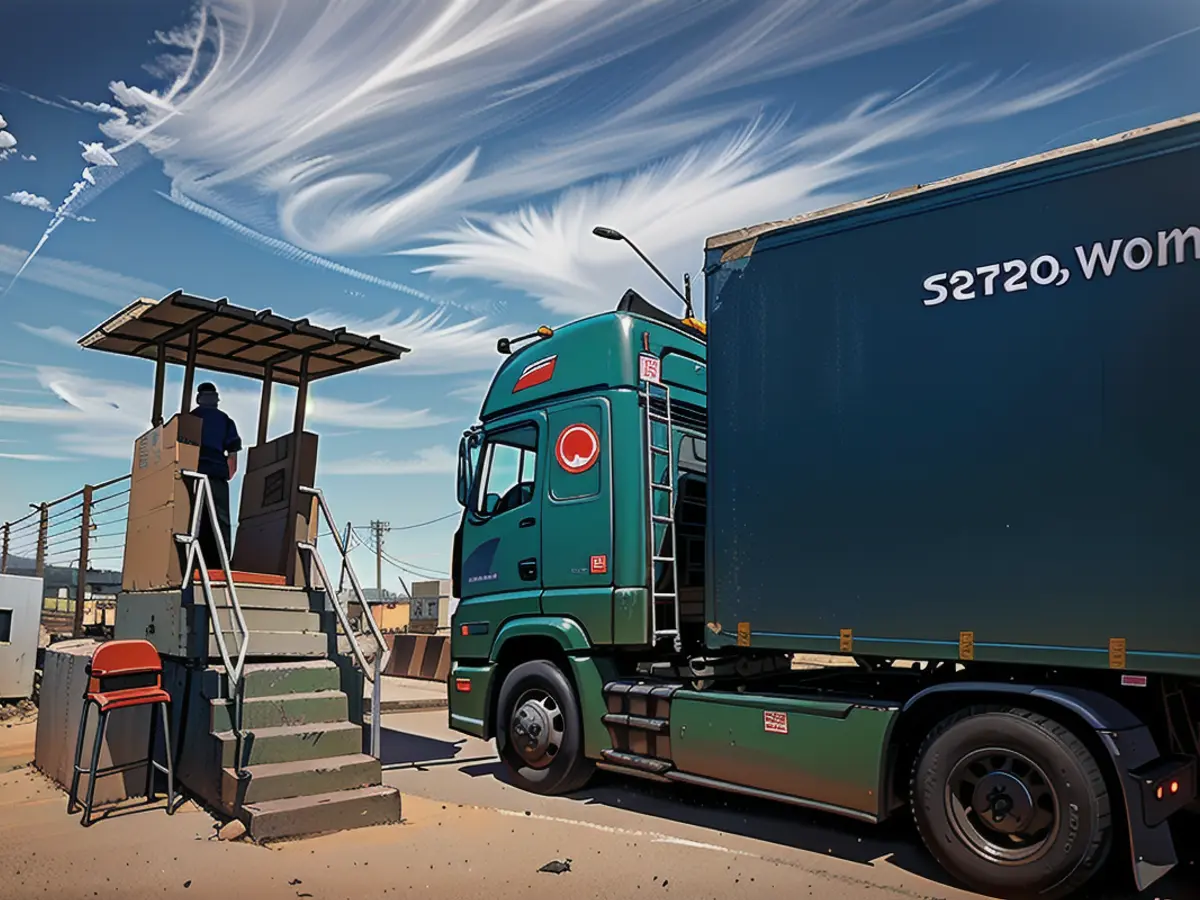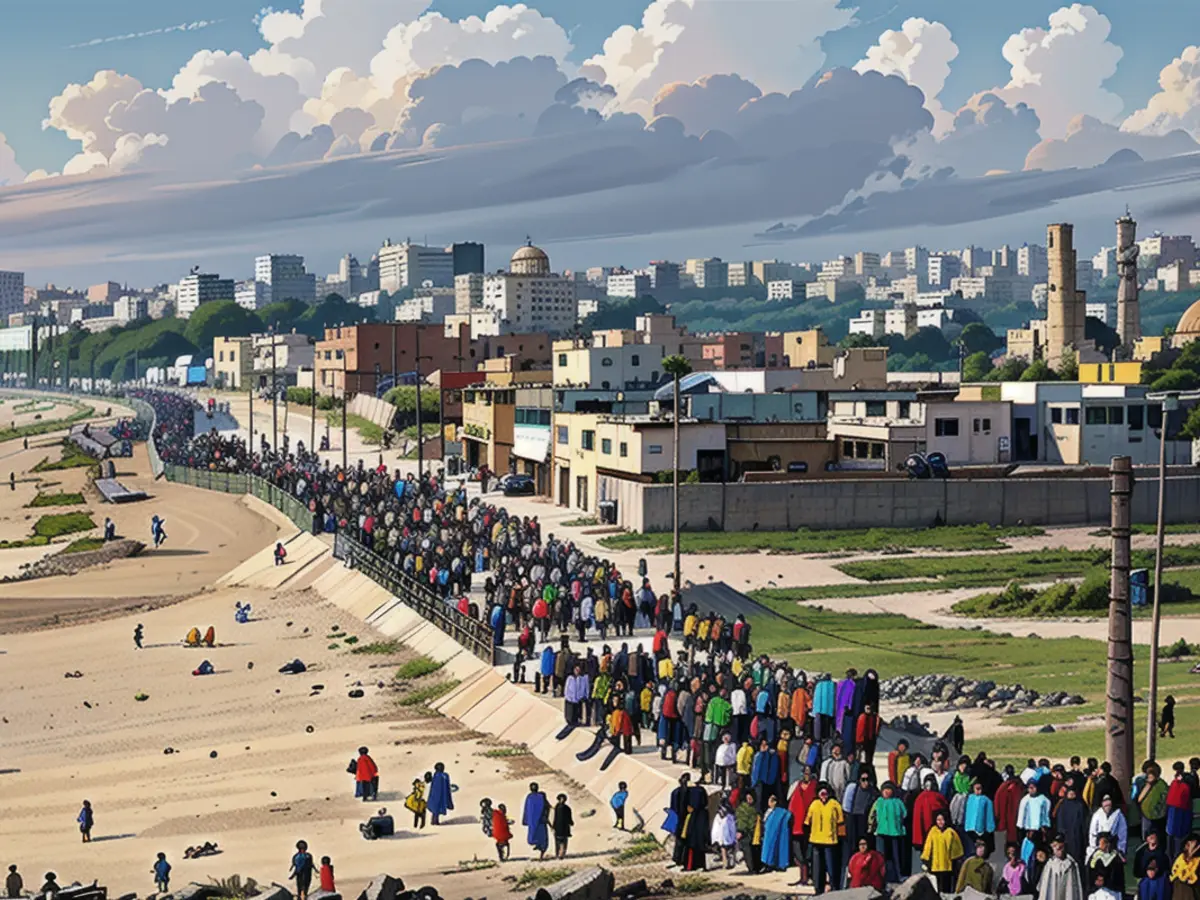Perspective: The Challenging Mission of Delivering Food Aid in Gaza
Over the past few weeks, Israel has been dropping leaflets in eastern Rafah, urging thousands of Palestinians to relocate to areas already decimated by airstrikes. The impending ground invasion has triggered a sense of desperation as Israeli attacks intensify.
Due to the turbulence, numerous aid providers, including personnel from the American Friends Service Committee (AFSC), have made Rafah their base of operations. My colleagues at AFSC in Gaza had been ensuring hot meals were served from open-air kitchens and organizing recreational activities for children and teens since October.
Providing crucial aid to over half a million people, the team in Gaza remained undeterred despite enduring tremendous personal loss. Their homes have been leveled, forcing them to move constantly in search of security that remains elusive. The death toll of their family members from air raids has exceeded dozens.
Our office in Gaza City, already within a protected and deconflicted building, was bombed last October, leaving its fate unknown. In Rafah, our staff live within a compound shared by numerous other families as they continue managing the logistics of delivering humanitarian aid. Now, they're searching for shelter once more.
The majority of Rafah's population, currently well over 1.4 million Palestinians, comprising more than 600,000 children, have been driven from their homes elsewhere. Many of these children suffer from illnesses, trauma, wounds, or malnutrition. In fact, more Palestinian kids have been killed in Gaza during the past seven months than in all global conflicts during 2019-2022.
Israeli military forces have obstructed aid from entering via the Kerem Shalom crossing. The Israeli army destroyed the Rafah crossing and, in addition, has seized and shut the Kerem Shalom crossing since the beginning of their offensive. Rubble and ongoing conflicts are hindering the passage of both vehicles and people. The crossings have been decimated on the Palestinian side. Israeli settlers are also damaging aid vehicles and food supplies.
A United Nations report recounts how, on May 1, an AFSC delivery of 960 bags of flour was ambushed by Israeli settlers, heading from Amman to Gaza. Apart from AFSC's aid trucks stuck in Egypt, the dozens of other aid trucks that have been unable to enter serve as a stark reminder of the situation.

Egypt has been contemplating opening the border through Kerem Shalom following Israel's takeover of the Gaza side of the crossing. With the Biden administration's announcement of a provisional agreement to let aid through, a step forward has been taken.
The Israeli government, which has a legal responsibility under international law, neglects the delivery of aid for the humanitarian requirements of Gaza residents. Instead, it inflicts hardships on this population by withholding basic needs like food, water, medical supplies, and other essentials.
The closure of the Rafah crossing restricts the delivery of humanitarian aid to those in dire need. Additionally, it impedes the procurement of the fuel required for humanitarian operations. Officers in AFSC have reported dwindling fuel supplies, with most lasting only a few more days. Facilities like bakeries, water treatment plants, and sewage pumping stations are set to be compromised.
Since 1948, AFSC has been active in improving living conditions in Gaza, offering refugee camps and distributing food. The United Nations sought AFSC's involvement in aiding refugees displaced from their original homes to Gaza. When I first visited Gaza during a peace and humanitarian mission, it left an overwhelming impression, even for someone with over 25 years of experience navigating complex humanitarian situations.
Getting clearance from Israel to visit Gaza took months. On my way across the Erez crossing in northern Gaza, I encountered multiple Israeli checkpoints and thorough screenings, followed by a long metal tunnel. Though I was a humanitarian worker with an American passport, relatively few Palestinians found it easier to cross through. Now, it's nearly impossible for them.
The area that holds the Gaza Strip equals Detroit's size. Israel's blockade, which has persisted for 17 years, restricts travel and trade while controlling electricity and water supply. Today, it's difficult even for standard humanitarian operations to access Gaza. Seventy percent of the locals face starvation catastrophe.

The Palestinians warned by the Israeli government to evacuate Rafah are now stranded without options. Having lost their homes to destruction, the conditions necessitating their earlier migration now leave them without options - most buildings in Gaza have been rendered unusable. Experts estimate the cleanup could take 14 years.
Despite the widely shared consensus that an attack on Rafah would lead to an alarming increase in civilian casualties and further worsen a humanitarian crisis already teetering on the brink, numerous world leaders, including US President Joe Biden, have condemned such an assault. In the US Congress, a group of 57 representatives signed a letter objecting to an invasion and urging the US to halt the provision of all offensive weapons to Israel if the invasion proceeds.
Biden put a hold on sending 2,000-pound missiles and other heavy weaponry to Israel. However, this isn't nearly enough, especially when he's still pushing forward with a $1 billion arms deal with the Israeli government. This new deal includes millions of dollars for tank ammunition and mortar shells. For the people of Gaza, the fact that they're dying from US-made weapons instead of US-made bombs doesn't make a difference.
Gaza is witnessing daily deaths of children. Thousands of families are desperately searching for safe havens. We need to uphold international humanitarian law and prevent further deaths and hunger. Attacking what was the last (relatively) safe place in Gaza breaks all rules of war.
President Biden should be aware that this line shouldn't be crossed. He has the authority to demand that Israel follows international humanitarian and human rights laws, permits unrestricted humanitarian access, and settles for a cease-fire.
If the US were to withhold military support, Israel would likely have to change tactics. In light of our long-standing humanitarian agreements, we must do our part to halt the killings in Gaza.

Read also:
- This will change in December
- Dikes withstand water masses so far - Scholz holds out the prospect of help
- Fireworks and parties ring in 2024 - turn of the year overshadowed by conflicts
- Attacks on ships in the Red Sea: shipping companies avoid important trade route
The team from AFSC in Gaza has been faced with diverse opinions from the local population regarding their attempts to provide aid, as some view their presence as a necessary source of relief while others see it as an intrusion.
In light of the complicated situation, international humanitarian organizations need to consider various opinions and perspectives from both the Israeli and Palestinian sides to devise effective and sustainable solutions for the delivery of aid in Gaza.
Source: edition.cnn.com







